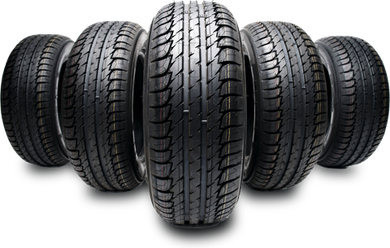Inexpensive Discount Tires Morris IL: Unbeatable Rates, Top Quality Ensured
Inexpensive Discount Tires Morris IL: Unbeatable Rates, Top Quality Ensured
Blog Article
Tire Solution: Recognizing Tire Pressure Surveillance Systems
Comprehending Tire Stress Surveillance Solutions (TPMS) is a critical element of keeping ideal automobile performance and security when traveling. With improvements in automotive modern technology, TPMS has actually come to be a conventional attribute in contemporary automobiles, offering real-time details on tire stress levels. Diving deeper right into the intricacies of TPMS, one can reveal the various parts that make up this system and the value of each in guaranteeing precise surveillance. From straight to indirect TPMS systems, the landscape of tire stress tracking is varied, each with its one-of-a-kind collection of benefits and factors to consider. Stay tuned to decipher the intricacies of TPMS, from upkeep suggestions to the obvious benefits of maintaining your tires properly inflated. tire shop morris.

Significance of TPMS
The relevance of Tire Pressure Monitoring Systems (TPMS) depends on their ability to improve lorry safety and performance through real-time surveillance of tire stress degrees. Preserving the right tire pressure is essential for ensuring optimal handling, stopping, and general safety and security of a lorry. TPMS provides chauffeurs with immediate comments on any underinflated or overinflated tires, allowing for timely adjustments to be made.
Components of TPMS
Sensors are commonly located in the tire valve stem or connected to the wheel assembly, where they measure tire pressure and transfer data to the control component. Some advanced TPMS versions additionally show the real tire pressure readings for each tire, giving vehicle drivers with real-time details to ensure optimum tire efficiency and security. By checking tire pressure continually, TPMS assists avoid mishaps, decreases tire wear, and improves gas effectiveness, making it a vital part for vehicle safety and security and efficiency. discount tires morris il.
Kinds Of TPMS

On the various other hand, indirect TPMS depends on the car's wheel rate sensors to check tire pressure. This system spots underinflation by comparing the rotational rates of the wheels. Indirect TPMS is less pricey than straight TPMS, as it makes use of existing sensing units within the vehicle.
While straight TPMS provides more accurate analyses, indirect TPMS is easier in design and typically needs less maintenance. Both systems have their benefits and limitations, and the selection between them often depends upon elements such as expense, vehicle make, and personal choice. Comprehending the distinctions in between these two types of TPMS can assist lorry proprietors make educated choices pertaining to tire upkeep and safety.
TPMS Upkeep Tips
Reliable maintenance of TPMS is essential for ensuring optimal performance and safety of your car. Regularly inspecting the TPMS sensors for any type of damage or deterioration is essential. Guarantee that the sensing units are totally free and tidy from particles that might disrupt their functioning. Furthermore, it is advisable to examine the sensing unit batteries periodically and replace them as needed to ensure accurate analyses. Conduct routine examine the tire pressure degrees and compare them with the TPMS readings to ensure they correspond. Rectify the system adhering to the producer's standards if there are any kind of discrepancies. During tire rotation or substitute, make certain that the TPMS elements are dealt with very carefully to avoid any kind of potential damage. If the TPMS cautioning light brightens on the control panel, resolve the concern immediately by examining the tire stress and the total system for any kind of mistakes. By sticking to these maintenance suggestions, you can prolong the life-span of your TPMS and enhance the safety of your driving experience.
Advantages of Appropriate Tire Stress
Preserving news appropriate tire pressure, as emphasized in TPMS Maintenance Tips, is essential for enjoying the numerous benefits connected with optimal tire stress levels. Among the key advantages of keeping the proper tire pressure is boosted fuel effectiveness. When tires are correctly blown up, there is much less rolling resistance, resulting link in far better gas economic climate. Additionally, appropriate tire pressure makes certain even tire wear, prolonging the life expectancy of the tires and promoting more secure driving conditions. With the right tire pressure, cars likewise have better handling and traction, especially in unfavorable weather. This can improve total driving performance and security for the chauffeur and passengers. Keeping ideal tire pressure can add to a smoother and extra comfy ride by reducing resonances and noise created by underinflated tires. Finally, the advantages of appropriate tire pressure surpass simply tire longevity; they encompass improved fuel performance, improved security, better automobile performance, and overall driving comfort.
Conclusion
To conclude, understanding tire pressure monitoring systems (TPMS) is vital for maintaining optimal tire stress and guaranteeing car safety and security. By identifying the significance of TPMS, knowing with its components, recognizing the different kinds offered, sticking to proper maintenance tips, and understanding the benefits of preserving appropriate tire pressure, drivers can improve their driving experience and lengthen the life expectancy of their tires. Proper tire pressure is key to reliable and risk-free lorry operation.

Report this page